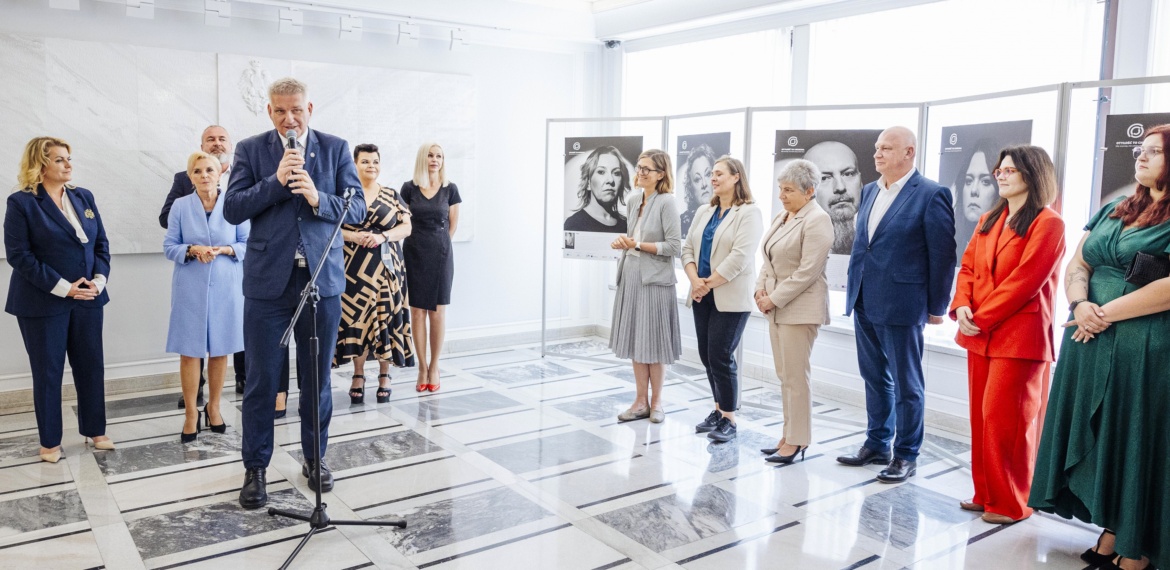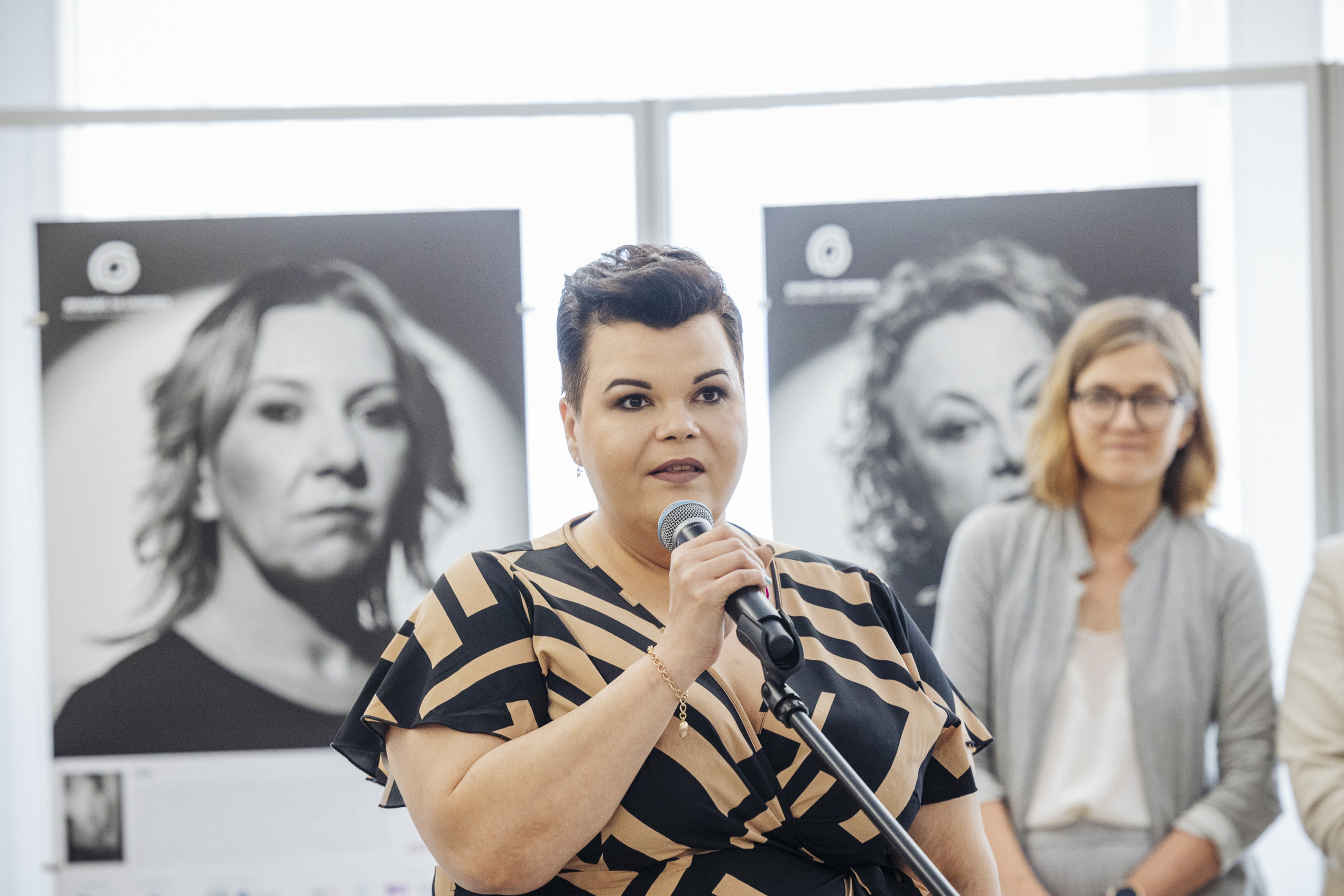"Obesity is a disease. Don't judge, don't slim down, just cure.", is the slogan of the social campaign launched by FLO -Foundation for the Treatment of Obesity. The aim of the campaign is to raise public awareness of obesity disease, to counteract stigmatisation and discrimination of patients and to draw attention to the need to take systemic action for the diagnosis and comprehensive treatment of this severe, recurrent and life-threatening disease.
There are as many as 2.5 billion overweight people (over 18 years of age) in the world, including 890 million with obesity[1]. The situation in Poland is also very serious. The results of the 2019 CBOS survey indicate that 59% of adult Poles are overweight, including as many as 21% Poles suffering from obesity. Overweight and obesity shorten the life expectancy of the average Pole by nearly 4 years, and in the next 30 years, our country will lose about 4.1% of GDP on expenses related to overweight and obesity and the diseases they cause.[2] Projections are not optimistic either, with an estimated 26% of adult women and 30% of adult men struggling with obesity in 2025. If these predictions come true, we will spend 0.3 - 1.0 billion more on the treatment of obesity-related diseases in 2025 than in 2017.[3] Despite the fact that obesity (E66.0), has been on the WHO International List of Diseases and Health Problems (ICD - 10) for many decades, it is still a 'transparent' disease, i.e. rarely included in the diagnosis and hardly included in the cause of death.
Obesity is a disease written on the body, publicly exposed, impossible to hide. If a patient has obesity, everyone around him or her knows it, although rarely is anyone - including often the patient himself or herself - aware that it is a serious disease of a chronic nature, prone to recurrence, which does not go away on its own and causes severe health complications. It can also lead to premature death. - says Katarzyna Glowinska, President of FLO - Foundation for the Treatment of Obesity. Precisely because obesity disease can be seen at first glance, and because there is still insufficient public awareness of it, patients are judged, blamed for the development of the disease and accused of laziness, negligence or lack of willpower. - adds Głowińska.
People suffering from obesity struggle not only with the disease itself, but also with discrimination and stigmatisation.
As many as 69% Poles confirmed that they had witnessed verbal abuse towards people with obesity. When asked what hurtful words they hear against them, patients most often mentioned terms such as: "fat man", "fat girl" (56%), "pig", "hog", "sow", "sow", "fattening pig", "boar" (27%) or "spay" (18%).[4]
This indicates that the need to build awareness in this area is still great and absolutely necessary. This applies to the general public as well as the medical community and those influencing national health policy. Unfortunately, obesity is still treated mainly as a cosmetic defect and there is a lack of conviction that the disease is not the patient's choice or fault. As a result of this approach, only 1% patients with obesity are causally treated, the rest as a result of its severe sequelae[5].
Professor Lucyna Ostrowska, MD, President of the Polish Society for the Treatment of Obesity, emphasises: Obesity is not just about excess weight or appearance, but above all a very dangerous disease that leads to approximately 200 health complications (including type 2 diabetes, cardiovascular disease, osteoarticular degeneration, stroke, depression and many others), and that increases the risk of death. Obesity is a multifactorial disease, biologically and genetically determined and dependent on environmental factors. It needs to be diagnosed and treated, as patient goodwill and recommendations such as 'eat less and move more' are not enough to halt the progression of the disease. People with obesity are the only group of patients who are still expected to heal themselves, and the patient needs comprehensive medical care and treatment. - adds Prof Ostrowska.
According to the WHO, obesity is becoming a growing challenge for health and social policy. Dr n. ekon. Małgorzata Gałązka-Sobotka, Dean of the Centre for Postgraduate Education and Director of the Institute of Healthcare Management at Lazarski University, emphasises: The treatment of obesity disease requires the development of a comprehensive, long-term and effective strategy. As with other diseases, it should start with large-scale prevention. The expenses associated with it are much lower than the costs of treating obesity disease and its consequences. (...) Longer and more frequent visits to the doctor, hospitalisations, absenteeism from work or a significant reduction in the productivity of an employee with an obesity-related disease are a heavy burden on the economy. It is estimated that the cost of caring for patients with obesity-related disease is 44% higher than for those of normal weight.[6]– markadr Gałązka-Sobotka.
The treatment of obesity in Poland is a challenge for the healthcare system. The approach to treating obesity at its most advanced stage has changed over recent years. The Ministry of Health's pilot programme 'KOS-BAR' has been introduced, allowing patients to access comprehensive care and treatment using surgical procedures. Another Ministry pilot programme
The 'KOS- BMI 30 +' was developed by the Health Council and was also subject to public consultation. What will happen next? It is not known. The patient community hopes for its rapid introduction. This is because the programme provides access to appropriate treatment at earlier stages of obesity, which is extremely important from the patient's point of view, as it prevents the development of the most advanced stage of the disease. There are also plans for a 'KOS-BMI Children' programme, aimed at people under the age of 18 with obesity or who are at risk. It is worth noting that the KOS-BMI 30+ programme, like KOS-BAR, is only planned in 21 centres in Poland, which is a drop in the ocean of needs, and let us remember that there are more and more patients every year.
Obese patients in Poland currently have no access to innovative medical technologies. The drugs that have appeared on the market are not financed by the National Health Fund, so it remains to purchase the drugs with their own funds. - says Katarzyna Glowinska. Meanwhile, patients, very often due to the severity of their disease and physical limitations, are unable to work and therefore do not have the resources to purchase therapies. Obese patients, like patients with other severe diseases, should have access to innovative medical technologies financed by the National Health Fund. This could save their health and lives, and protect the healthcare system from the enormous costs of treating complications of obesity disease. - adds Glowinska
Obese patients expect diagnosis, treatment and multi-specialist coordinated care. It is an opportunity for them to live a normal life, work, fulfil their social and family roles. Obesity devastates health and life in all its spheres and should not be underestimated, but diagnosed and treated.
There are currently five preparations registered in Poland for the treatment of obesity, which differ in their mechanism of action and method of administration. The choice of treatment should be decided by the doctor in consultation with the patient. Clinicians and patient organisations are sounding the alarm, reminding us of the urgent need for strategic changes in the care of patients with obesity disease and access to treatment, as with other diseases. Obesity is an epidemic of our time, it requires a systemic approach and a national plan for prevention and treatment of this disease - emphasises Professor Lucyna Ostrowska, President of the PTLO.
***
The campaign "Obesity is a disease. Don't judge, don't slim down, just treat it". was launched by FLO - Foundation for the Treatment of Obesity" in April 2024. The aim of the campaign is to build awareness of the obesity disease in society, the medical community and decision-makers, and to take action to improve the quality of life and treatment of obese patients in Poland. An important objective of the campaign is to counteract discrimination and stigmatisation of patients in society and the medical community and to dispel stereotypes associated with the disease.
The official launch of the campaign took place at the Senate of the Republic of Poland, where the opening of an educational exhibition entitled 'Don't judge me! It's not my fault. #Chort for obesity. The opening was preceded by a meeting of patients suffering from obesity with the Marshal of the Senate of the Republic of Poland, Małgorzata Kidawa-Błońska, attended by: Professor Lucyna Ostrowska - President of PTLO, Professor Beata Matyjaszek-Matuszek - Vice-President of PTLO, Marek Augustyn - Vice-President of the National Health Fund, Katarzyna Głowińska - President of FLO - Obesity Treatment Foundation, Paweł Obermeyer - President of Czerniakowski Hospital, and the exhibition's protagonists. It was a substantive meeting about the situation of obese patients in Poland and the need for systemic changes in this area. This was followed by the opening of the exhibition with a press conference. The event was opened by Agnieszka Gorgoń-Komor, MD, PhD - Senator of the Republic of Poland, and the floor was given to Wojciech Konieczny, Undersecretary of State in the Ministry of Health, experts from the Polish Society for the Treatment of Obesity, and Katarzyna Głowińska, a patient and President of FLO - the Foundation for the Treatment of Obesity. It is worth noting that this is the first time in Poland that the Parliament has opened its doors to patients with obesity.




On 24 May, a scientific conference on obesity-related disease was held in the Senate of the Republic of Poland, as part of a meeting of the Parliamentary Group for Scientific Research and Innovation in Health Care, chaired by Senator Agnieszka Gorgoń-Komor, MD, PhD.
The campaign will include videos, educational graphics, human stories of patients with obesity-related disease. Educational conferences and webinars, traditional and social media activities are also planned.
[1] WHO: https://www.who.int/news-room/fact-sheets/detail/obesity-and-overweight, accessed 19.03.2024.
[2] OECD Health Policy Studies
[3] Report "Sugar, obesity - consequences."; Department of Analysis and Strategy NATIONAL HEALTH FUND
[4] The publication 'How to talk supportively about obesity disease - a practical dictionary', is based on a representative opinion poll with more than 1,000 respondents: both obese and healthy. (Campaign 'Let's talk frankly about obesity').
[5] Termedia. "Obesity-related disease requires comprehensive treatment". Access: https://www.termedia.pl/mz/Choroba-otylosciowa-wymaga-kompleksowego-leczenia-,55372.html (05.04.2024).
[6] Sturm R, Ringel JS, Andreyeva T. (2004) Increasing Obesity Rates And Disability Trends. Health Affairs 23(2):199-205.

